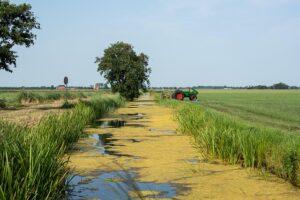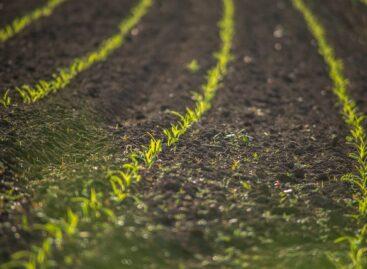Responsible agricultural water management is key during droughts
It is of paramount importance that Hungarian agriculture can adapt to the challenges posed by climate change, and that we preserve the value and productivity of domestic farmland for future generations. Therefore, the Ministry of Agriculture is committed to creating responsible and sustainable agricultural water management, for which numerous tools are available – said Imre Hubai, State Secretary for Agriculture at the Ministry of Agriculture, on the occasion of the World Day to Combat Desertification and Drought.

(Photo: Pixabay)
Climate change, the frequency of droughts and the ever-decreasing water resources also pose challenges for our country – highlighted Imre Hubai, who reminded that in response to the drought situation, the government established the Drought Protection Operational Team in May, declared a drought emergency and adopted the drought protection action plan, the implementation of which has already begun. In addition, the government will assume this year’s water fee of farmers in the amount of 8.1 billion forints from the 2025 central budget, and has allocated an additional 10.2 billion forints for the implementation of this year’s investments. The State Secretary highlighted that the Ministry of Agriculture treats irrigation development as a priority, and thanks to the Rural Development Program of the previous period, more than 1,300 producer water management projects were supported, the amount of which amounted to approximately 168 billion forints. Thanks to the measures taken so far, the size of irrigated areas has increased by 32 thousand hectares and more than 130 irrigation communities have received approximately 10 billion forints in non-refundable support. The goal is for the size of irrigated agricultural areas to reach 350 thousand hectares by 2030.
The CAP Strategic Plan continues to emphasize support for the application of water-saving farming practices
As an example, he mentioned that the call for proposals for “Complex investments within the agricultural holding to improve the efficiency of irrigation development and water use” was published with a budget of approximately HUF 50 billion. In addition, the government supports the filling of dried-up lake beds, backwaters, canals and reservoirs and prioritizes the creation of permanent wetlands. An additional HUF 4.7 billion has been provided for these purposes, thanks to which 150-200 million cubic meters more water may be available in the affected areas by the end of summer, he added. With the support of the Ministry of Agriculture, the Hungarian University of Agricultural and Life Sciences developed a Complex Nature-based Inland Water Vulnerability Probability Map, as well as a map based on related topography, soil and land use data. Subsequently, the Ministry of Agriculture conducted a national survey in the spring of 2024, involving additional professional and interest-based organizations, with the aim of learning about farmers’ willingness and knowledge of water retention in low-lying areas suitable for water retention, indicated Imre Hubai. He also emphasized that water retention is primarily the responsibility of state infrastructures, but the participation of farmers and local communities is key. Cultivation techniques that improve the water retention capacity of the soil, increasing the organic matter content, and the use of drought-tolerant varieties are essential for the agriculture of the future. The Agro-ecological Program, launched in 2023, supports the water retention of areas with numerous practices, such as winter mulching, the designation of non-productive areas, the use of microbiological preparations, soil and plant conditioning preparations, and soil cultivation without rotation. Farmers can do a lot to preserve their fields, such as micro-irrigation technologies, as well as the use of microbiological and soil conditioning products and various mulch options.
AM
Related news
CBAM causes market disruption
🎧 Hallgasd a cikket: Lejátszás Szünet Folytatás Leállítás Nyelv: Auto…
Read more >The government provides significant funding to support the development of crop dryers
🎧 Hallgasd a cikket: Lejátszás Szünet Folytatás Leállítás Nyelv: Auto…
Read more >Agricultural vocational training also places great emphasis on irrigation development
🎧 Hallgasd a cikket: Lejátszás Szünet Folytatás Leállítás Nyelv: Auto…
Read more >Related news
Nestlé to sell remaining ice-cream assets but commits to Froneri venture
🎧 Hallgasd a cikket: Lejátszás Szünet Folytatás Leállítás Nyelv: Auto…
Read more >Lidl guarantees fairer prices for cocoa farmers
🎧 Hallgasd a cikket: Lejátszás Szünet Folytatás Leállítás Nyelv: Auto…
Read more >








